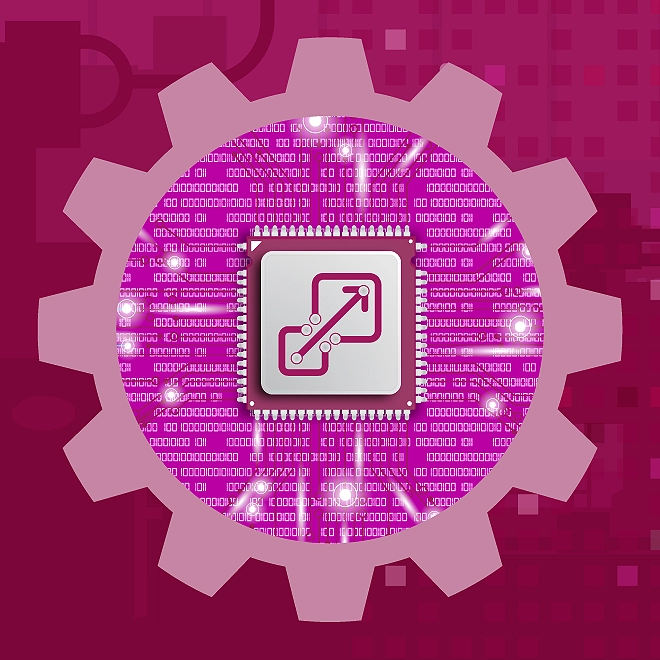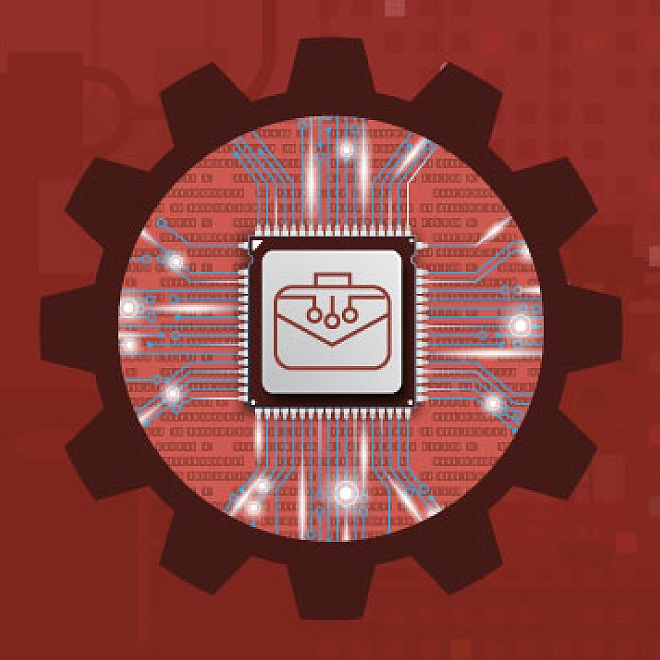The Industry 4.0 paradox
Executive summary
INDUSTRY 4.0 has both expanded the possibilities of digital transformation and increased its importance to the organization. Industry 4.0 combines and connects digital and physical technologies—artificial intelligence, the Internet of Things, additive manufacturing, robotics, cloud computing, and others—to drive more flexible, responsive, and interconnected enterprises capable of making more informed decisions.1
This Fourth Industrial Revolution carries with it seemingly limitless opportunity—and seemingly limitless options for technology investments. As organizations seek digital transformation, they should consider multiple questions to help narrow their choices: what, precisely, they hope to transform; where to invest their resources; and which advanced technologies can best serve their strategic needs. Further, digital transformation cannot happen in a vacuum; it does not end simply with implementing new technologies and letting them run. Rather, true digital transformation typically has profound implications for an organization—affecting strategy, talent, business models, and even the way the company is organized.2
As Deloitte sought to understand how companies are investing in Industry 4.0 to enable digital transformation, we fielded a global survey of 361 executives across 11 countries. While its definition has expanded, Industry 4.0 has its roots in manufacturing. As such, our global survey focused on manufacturing, power, oil and gas, and mining companies and examined how and where they are investing—or planning to invest—in digital transformation; some of the key challenges they face in making such investments; and how they are forming their technical and organizational strategy around digital transformation.
The survey revealed a mix of enthusiasm and ambitious plans for future investment—as well as a series of disconnects between companies’ plans and actions, which we explore in the following chapters. While digital transformation is taking shape in nearly every organization, paradoxes can be observed around strategy, supply chain transformation, talent readiness, and drivers for investment. This suggests that the will for digital transformation remains strong, but organizations are largely still finding a path that balances improving current operations with the opportunities afforded by Industry 4.0 technologies for innovation and business model transformation.
The strategy paradox. Nearly all respondents (94 percent) indicated that digital transformation is a top strategic objective for their organization. Just because respondents appear to understand its strategic importance, however, doesn’t necessarily mean they are fully exploring the realm of strategic possibilities made possible by digital transformation. In fact, many fewer (68 percent) see it as an avenue for profitability.
The supply chain paradox. Executives identified the supply chain as a top area for both current and prospective digital transformation investments, indicating that supply chain initiatives are a top priority. However, supply chain executives and those outside of the C-suite who direct the actual day-to-day business operations—i.e., those with presumably the most “touch and feel" involvement with the implementation of digital technologies—do not appear to have a seat at the table when it comes to decisions about digital transformation investments.
The talent paradox. In keeping with Deloitte’s previous research on Industry 4.0,3 executives report feeling quite confident that they have the right talent in place to support digital transformations—but also seem to admit that talent poses a vexing challenge. Indeed, only 15 percent of respondents indicated they need to dramatically alter the composition and skill sets. At the same time, however, executives point to finding, training, and retaining the right talent as their top organizational and cultural challenge.
The innovation paradox. Executives report their digital transformation initiatives are driven largely by productivity improvement and operational goals—essentially, leveraging advanced technologies primarily to do the same things better. This finding has been borne out in previous Deloitte studies, suggesting a wider pattern around using advanced technologies for near-term business operations—at least initially—rather than truly transformative opportunities.4 Yet innovative opportunities abound—and should not be discounted. Organizations driven by other factors, such as an increased desire for innovation and internal strategy focus, reported an equally positive return on investment.
Around the physical-digital-physical loop. The ability to fully harness information from connected assets and use it to drive informed decisions is important to the full realization of Industry 4.0, and one which many organizations may not yet fully be able to execute in practice.
Our research suggests that executives in manufacturing, oil and gas, power and utilities, and mining are aware of the opportunities the Fourth Industrial Revolution creates—and that they prize digital transformation as a way to harness that growth. At the same time, however, disconnects in different areas suggest that executives aren’t quite sure how to get there—even as they plan more significant investments in the future. As they seek to transform their organizations into interconnected enterprises capable of operating in an increasingly digital age, executives have many opportunities to build more connected, responsive, and intelligent operations—and find a path that truly embodies the promise of the Fourth Industrial Revolution.
About the research
To understand how companies are investing in Industry 4.0 to enable digital transformation, Deloitte fielded a global survey of 361 executives in 11 countries in the Americas, Asia, and Europe. The survey was fielded in association with GE Digital in the spring of 2018 by Forbes Insights, and captured insights from respondents in aerospace and defense, automotive, chemicals and specialty materials, industrial manufacturing, metals and mining, oil and gas, and power and utilities. All survey respondents were director level or higher, including CEOs (4 percent), CFOs (13 percent), COOs (9 percent), CDOs (5 percent), CIOs (7 percent), CTOs (5 percent), CSCOs (4 percent), business unit presidents (5 percent), EVPs/SVPs (7 percent), vice presidents (11 percent), executive directors/senior directors (9 percent), and directors (21 percent). All executives represented organizations with revenue of US$500 million or more, with more than half (57 percent) coming from organizations with more than US$1 billion in revenue.
Supply Chain and Manufacturing Operations Consulting
Deloitte’s Supply Chain and Manufacturing Operations practice is a leader in helping companies integrate business strategy with supply chain initiatives to drive operational excellence. Our deep industry experience encompasses new product development, inventory strategy and integrated demand planning, sourcing and commodity management, manufacturing footprint strategy and operations, distribution network and logistics optimization, and sustainability. We employ programmatic approaches, leverage analytics capabilities, and offer managed services that can help improve top-line growth, lower costs, reduce response times and increase productivity.
Learn more


